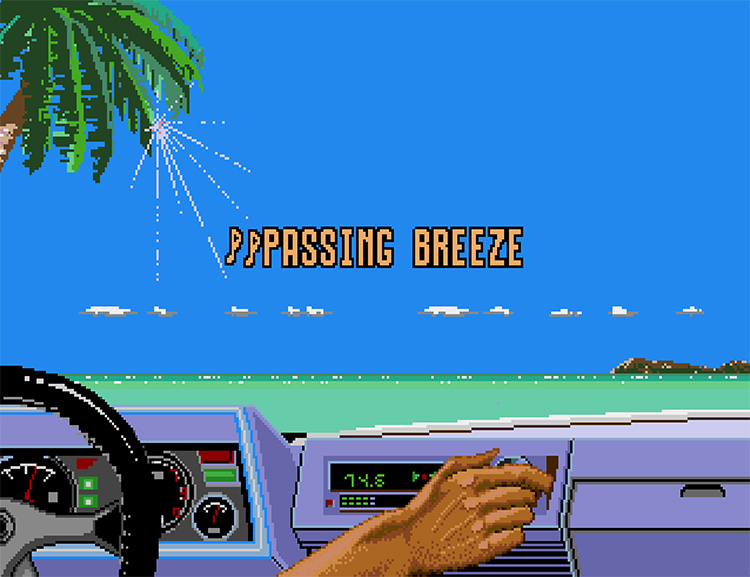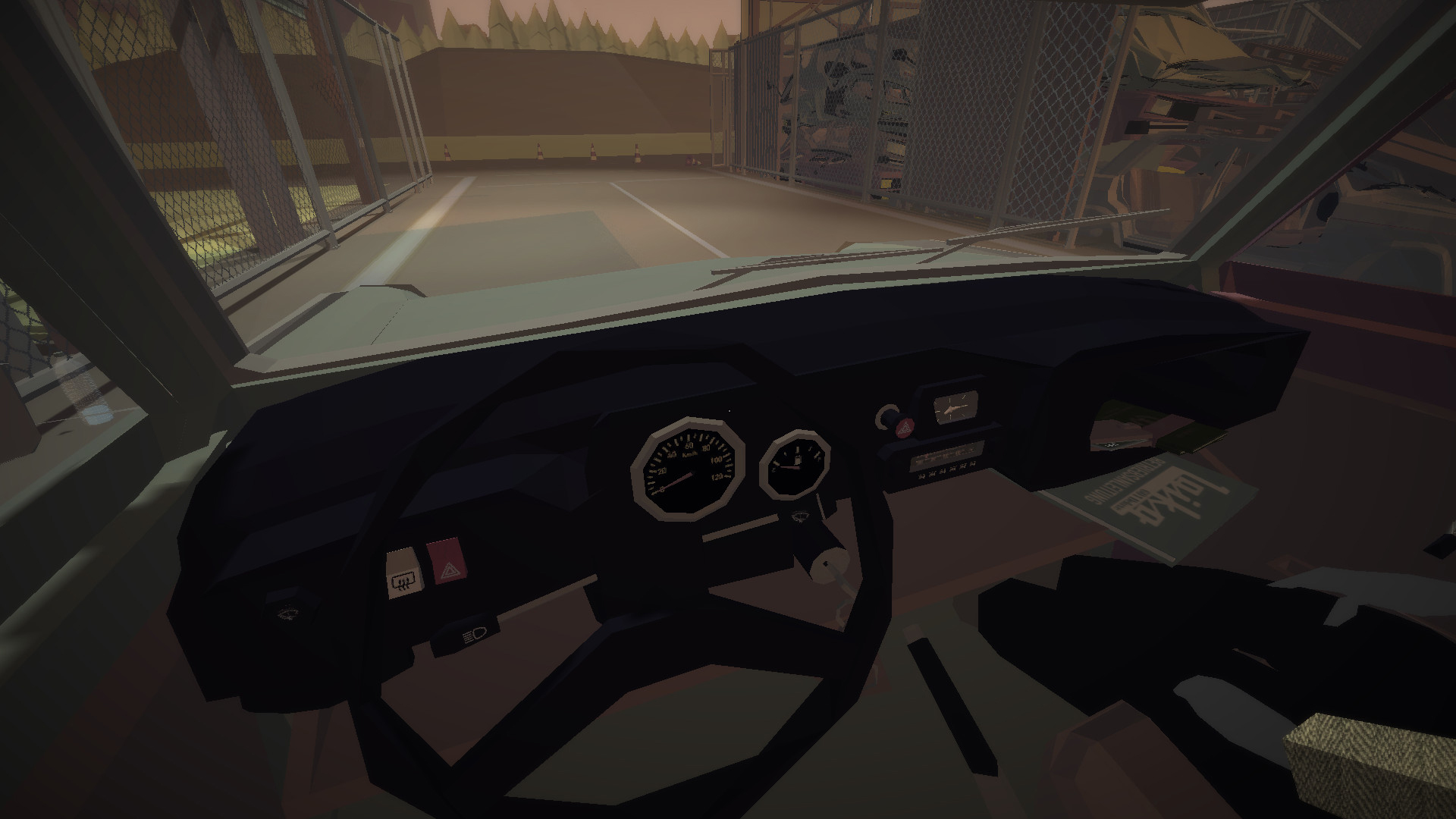From its origins in late 19th century experimental laboratories, radio grew to become one of the most popular forms of broadcasting. One hundred years later, and it still has a foothold among the other titans of media, buoyed by an ever-expanding number of delivery options and its continued ubiquity in everyday life. As writer Alisdair Pinkerton argues in his book Radio: Making Waves in Sound, it is “a medium of seemingly endless contradictions,” one that has the ability to be both global and personal, inspiring “feelings of friendship and community” alongside those of fear, loathing, and disgust. And you can see many of these contradictions on display in its portrayal within video games.
Radio finds itself particularly well represented within gaming, a relationship that likely originated out of a narrative and mechanical convenience. After all, radio can be quite a useful tool for worldbuilding, a way of squeezing a tubthumping soundtrack into a long, laborious trek across a gigantic open-world, and a way of presenting a mystery to the player for them to solve. Unlike other means of broadcasting, radio also has the benefit of being one of the most portable and accessible forms of entertainment, requiring significantly less bulky, less expensive hardware than TV or video.

Credit: Sega
Driving games are one of the genres that feature radio significantly, with the most obvious use being to try and construct a positive experience for the player. You can see a good demonstration of this in the 1986 Sega arcade driving game Out Run. Sitting down in a Ferrari Testarossa, players can tune their stereos to one of three tracks: Magical Sound Shower, Passing Breeze, or Splash Wave. Each of these tracks features a fast tempo and plenty of percussion, helping to embellish the exhilarating action unfolding on screen and excite the player.
The Forza Horizon series similarly uses radio across its games to create a party atmosphere around the fictional Horizon Festival. In each entry, you have a wide range of radio stations to pick from, most of which contain contemporary music and a friendly on-air personality that will fill the silence on the way to your next destination.
In recent years, there has also been an emergence of more introspective driving games, which provide an interesting contrast to the cool, energetic radio channels of most racing games. Jalopy, the indie road trip simulator about a journey across Eastern Europe, contains a slightly outmoded soundtrack, accessed via the car radio, which is comprised of quirky electronic polka tracks. In comparison to mainstream racing games, the music in Jalopy is far less obtrusive and more likely to conjure up nostalgic memories of cozy cross-country trips traveling in the family car listening to ’70s and ’80s pop music, than images of flashy commercials and expensive music festivals.

Credit: Minskworks, Excalibur Games
Road to Guangdong, a questionably produced follow-up from Jalopy’s publisher, Excalibur Games, uses its radio to express the character’s relationships. Here it highlights the generational divide between the protagonist Sunny and her elderly grandmother Guu Ma. As you make your way across China to save the family business, you compete over control of the radio, with Guu Ma preferring traditional music to the loud techno music available on the other channel. Should you switch it over, Guu Ma will pass a derisive comment, before leaning over and changing it back again. In both these games, the music is far less aspirational and more reflective instead of the characters and the respective journeys they are undertaking.
Of course, it would be difficult to discuss radio in games without also mentioning the open-world genre and series like Grand Theft Auto, Mafia, Fallout, and Just Cause, all of which use radio stations to develop a sense of authenticity around their worlds, and to deliver commentary on in-game events.
Grand Theft Auto was arguably the game that began this trend. It featured a number of made-up radio stations, comprised of original compositions. These helped create the impression of a living, breathing city, with numerous fictional artists performing a range of genres like drum n’ bass, house, and hip hop.
From Grand Theft Auto 2 onwards, the series’ radio stations started to take on a more satirical slant. Spoof commercials were incorporated into the breaks between songs, poking fun at subjects like game development, big pharmaceutical companies, and gun culture. This would continue into the later entries, with the game marking a tonal shift towards a more cynical worldview.
One of the most significant events to occur in the history of radio in games was arguably the introduction of Chatterbox FM in Grand Theft Auto III. While Grand Theft Auto 2 established the series’ crude comedy stylings, Grand Theft Auto III and Chatterbox FM perfected it and set the benchmark for other Grand Theft Auto games that followed. This was not only a game changer for the Grand Theft Auto series, but for the ever-growing list of games that followed in its wake. Driving around the housing blocks of the leafy Hepburn Heights or the red-bricked Italian neighbourhoods of Saint Mark’s, players could listen to the irreverent tones of its radio host Lazlow Jones. During the show, Jones, a real-life radio personality turned writer for the series, would take calls from listeners, giving us a chance to discover what the average person living in Liberty City thinks about in their spare time.
This fleshed out the world beyond measure and helped to create a sense of Liberty City being a real place that you could hop on a plane to visit—though exactly why you would want to is beyond me. Over the course of the show, we got to hear from concerned parents complaining about their kids’ damaging coin-collecting habits, sending up conservative attitudes towards violence in video games; trigger happy gun enthusiasts advocating for more firearms to solve the gang violence that players had actively contributed to; and frustrated citizens railing against everything from clothes to people talking on their cellphones in public. These conversations usually ended rather abruptly with Lazlow either getting into fights with the callers over their extremist views or hurriedly agreeing with them to get to the next person on the line. With Chatterbox FM, we were given the opportunity to look into the dark heart of Rockstar’s America and what it revealed to us was a neurotic, xenophobic, and conspiratorial vision of America, played for laughs.
Following Grand Theft Auto III, there were a number of games that used it as a blueprint for how they implemented radio, but one of the few titles that managed to reach the same heights in terms of creating an impression of a real place and moment in time was Mafia III. The game focused on a Vietnam War veteran returning to the States and getting caught up in a war between a competing criminal factions. Throughout the experience, players roam the fictional city of New Bordeaux (a location based on New Orleans) in the 1960s, encountering the prejudice of the era and the long shadow that Vietnam has cast over society. Its radio stations play a huge part in this.
The music in Mafia III features a number of songs that carry associations to the Vietnam War. Barry McGuire’s “Eve of Destruction” is perhaps the most obvious of these, a protest song about the Cold War and the civil rights movement that became a surprise hit in 1965 and that plays extensively on WBYU. But, in addition to this, you can also listen to the music of Creedence Clearwater Revival and The Animals version of “We Gotta Get Outta This Place”—all artists and songs that were regularly played among the armed forces serving in Vietnam at the time. Given the fractured and violent society that protagonist Lincoln Clay returns to in Mafia III, it’s easy to impossible to see this last track’s inclusion as anything but ironic, with the “better place” that Animals’ frontman Eric Burdon sings about turning out to be a hotbed of corruption, racism, and violence—at least from Lincoln’s perspective.
In addition to the selection of songs, you can also tune into a couple of talk radio shows. For instance, on WBYU’s Native Son, you’ll be able to hear the racist rants of Remy Duvall, the ultra-conservative leader of the white supremacist group The Southern Union. On this show, Duvall voices his negative opinions on issues, such as the civil rights movement, the Fair Housing Act, and communism, attempting to disguise his bigotry and hatred behind a chest-thumping patriotism and other twisted rationalities. Fortunately, for us, Duvall isn’t the only radio host that you can tune into. You can also regularly listen to Charles “The Voice” Laveau, the black host of a pirate radio station, who spends most of his airtime exposing the injustices carried out by New Bordeaux’s bigoted elite. Both of these hosts comment on Lincoln Clay’s actions throughout the game, with these perspectives helping to illustrate the racial division at the heart of the game’s story and the power of radio to communicate ideas, both terrifying and empowering.
You can see this elsewhere in other open-world games, too. The Just Cause series, for instance, features state-controlled radio stations that regularly broadcast propaganda. These include the Panau Broadcasting Company in Just Cause 2, the General New’s Network in Just Cause 3, and Solís Hoy in Just Cause 4. Each of these stations update with new broadcasts whenever a player completes an important objective, with the hosts spinning your actions in order to condemn them in front of their listeners. Similarly, the Far Cry series features a couple of radio stations that broadcast messages, both good and bad. One is Radio Free Kyrat from Far Cry 4, hosted by Rabi Ray Rana. Rana is someone who frequently communicates with the player, giving them the task of destroying Pagan Min’s propaganda centers, while broadcasting anti-Min messages constantly on his station to undermine the regime. Far Cry 5, on the other hand, contains the cult-controlled station Eden’s Gate Radio, which provides its message through the broadcasting of gospel and country-style propaganda songs, tracks that other the non-believers and warn of the doomsday fast approaching. And that’s to say nothing of Jet Set Radio, the Sega Dreamcast game about a graffiti-tagging group of in-line skaters, which casts the character DJ Professor K as its main narrator and a form of comic relief. Here the DJ is positioned as a hero in direct opposition to the main villain Gouji Rokkaku, who seeks to homogenize the city.
Fallout 3 is another game that follows the same basic structure, but because of its post-nuclear setting the importance of radio within its world is amplified greatly. Galaxy News Radio and its host, the charismatic radio personality Three Dog, are not only providing an important public service within the Capital Wasteland, but they are working to rebuild the wreckage of post-war America towards a brighter future. And radio is at the forefront of this movement. It is the only station in the game that plays non-government approved tracks, broadcasting and preserving old music from The Ink Spots, Ella Fitzgerald, and Billie Holiday; mementos from an America that was lost when the bombs were dropped. It is also responsible for creating a renewed sense of community: connecting the disparate junktowns of the Capital Wasteland, giving updates on the Lone Wanderer’s movements, and offering a response to the Enclave’s propaganda. With society in ruins, helping Three Dog to rebuild the wasteland in this manner feels satisfying, giving the player the chance to have a small but no less important impact on the world beyond the main quest and partake in the freedoms which existed prior to the bombs falling.
In the adventure genre, radios are also a common feature. But here they are used instead to hook the player into a wider mystery or as a puzzle that needs to be solved. In contrast to open-world games, here it’s equally about what’s not said than what’s said that interests the player. There’s something unsettling about intercepting unknown signals that immediately piques the interest, and developers are taking full advantage of it in their games. Oxenfree, Unforeseen Incidents, and Jenny LeClue all feature radio technology that can be tuned to specific stations to intercept “ghost” signals, with the solutions introducing shocking revelations and even deeper mysteries.
As you can see, developers have found a collection of uses for radio in games, exploiting their potential to intrigue, inform, terrify and disturb. From its origins in games as a tool for entertainment, it has since grown to be an important device for world-building, signposting progression, delivering perspectives through propaganda, and offering mysteries to solve. Over the years, with the arrival of television, the internet, and digital streaming services, many have repeatedly made the case that radio is on the decline. But, irrespective of this, it will likely continue to live on in games far into the future for its unique qualities and its potential for interactive storytelling.
Unlike other forms of broadcasting, radio remains strikingly agile, able to engage listeners without requiring much active engagement or even a strong attention span. This makes it perfect as a way for game designers to impart information to the player and immerse them in the fiction of virtual worlds. Though their real-life counterparts are ubiquitous, radios in video games have never lost their novelty—whether you’re listening to the soundwaves vibrating from a virtual dashboard or the trusty Pip-Boy strapped to your arm.
Header image credit: Fallout 3, Bethesda Softworks via EGM

A freelance journalist and lapsed musician from Manchester, U.K., Jack Yarwood spends most of his time playing Sea of Thieves online and the rest of his time tweeting about his obsession over on Twitter. Apart from writing, he’s also started branching out into video, making short films on the U.K. initiative Girls Game Lab and indie development in his home city. He has a particular interest in gaming communities and deep dives into game design.